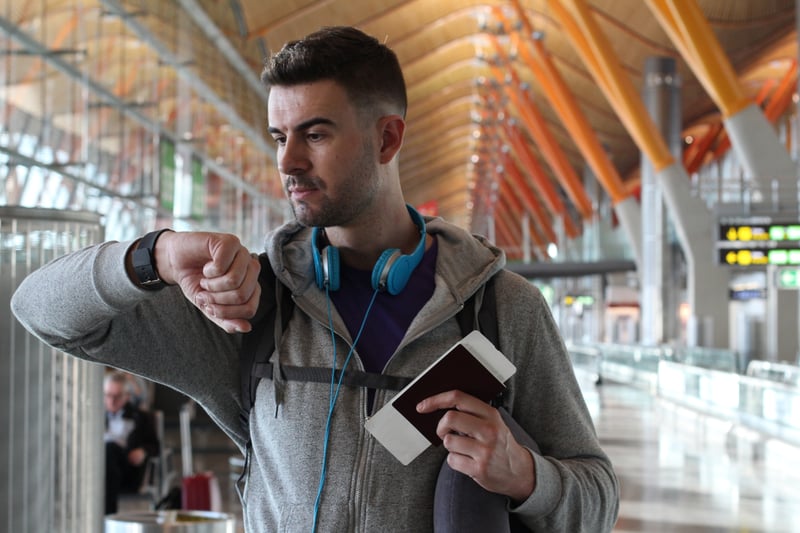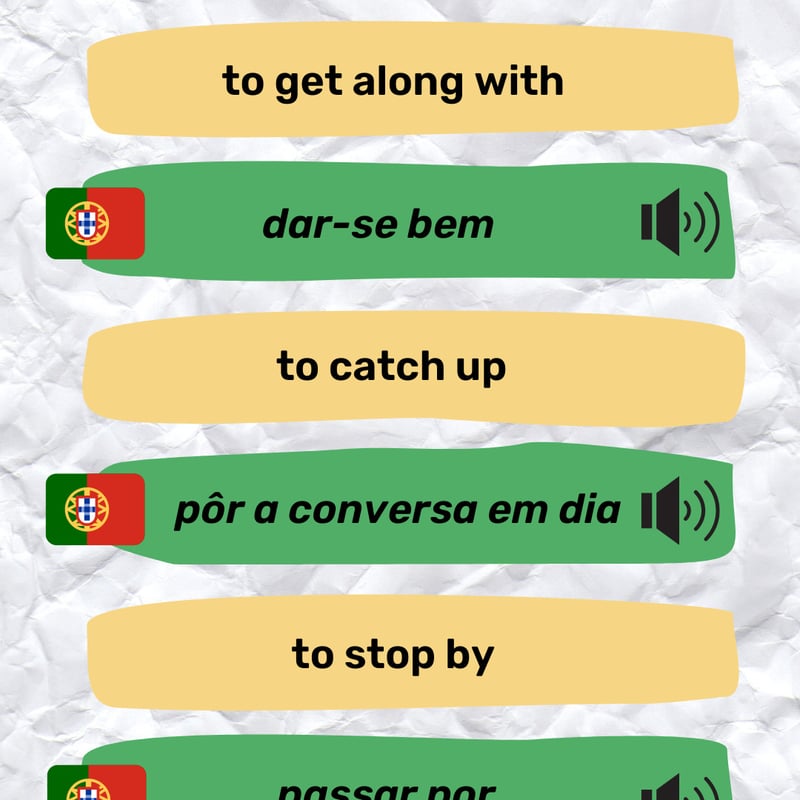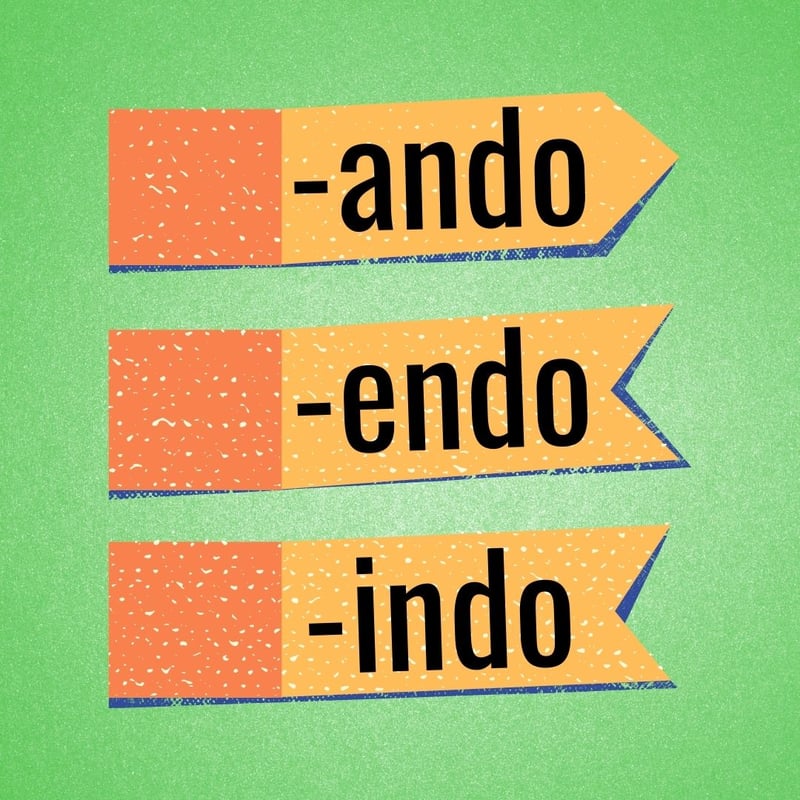The first compound tense we’re going to talk about is the pretérito perfeito composto do indicativo. To keep it short, and since the focus of this unit will just be the indicativo mood, we’ll just call it pretérito perfeito composto. So let’s get to it! As you are likely aware, the pretérito perfeito (simple past […]
Pretérito Perfeito Composto do Indicativo
Condicional Composto
Let’s talk about the compound form of modo condicional (conditional mood), which is the mood used for certain hypothetical situations and possibilities. If you need a refresher on the simple form first, check out this Unit, or here are a couple examples to jog your memory: Now, the compound form of the conditional can indicate a […]
Futuro Composto do Indicativo
Now we’ll turn our attention to the futuro composto do indicativo! (Let’s call it futuro composto for short) As you’re aware, an action in the futuro simples (simple future tense) takes place after the time the utterance is spoken and isn’t related to any other actions. In the futuro composto, however, the future action represented […]
More Irregular Verbs in the Simple Past
In the Simple Past 2 unit we practiced with some of the most common irregular Portuguese verbs in the simple past (pretérito perfeito do indicativo): ir, ser, estar, dar, and querer. Now let’s continue with a few more!
Demonstrativos e Advérbios de Lugar
Demonstratives And Adverbs Of Place
Damiana and Joel use objects around the office to show you the various demonstratives (this/that/these/those) and a few common adverbs of place (here/there). Learn which word to use when the object is near the speaker, near the listener, or far from both.
Compound Tenses with Nominal Forms
So, what are nominal forms? They are basically verb forms that play a similar role as nouns, adverbs, and adjectives. Unlike other verb forms, they do not indicate tense, mood, or person on their own. Instead, they depend on context (i.e. the surrounding conjugated verbs) to relay that information. The 3 nominal verb forms in […]
Pretérito Mais-que-perfeito Composto do Indicativo
The pretérito mais-que-perfeito do indicativo is the tense used to indicate an event that took place in the past before another event. As the name suggests, it’s beyond (“more than”) the pretérito perfeito tense. Unlike with pretérito perfeito, the pretérito mais-que-perfeito’s simple and compound forms both have the same meaning. The compound form we’re going […]
MEU or O MEU?
The purpose of this Learning Note is to address a common question we get from learners after they’ve finished our Unit about possessives in European Portuguese. The question is about when to use definite articles before possessive determiners/pronouns, and when they can be dropped. In other words, what’s the difference between Eles são os meus […]
Compound Tenses in the Subjunctive Mood
In Compound Tenses 1, we focused on in the indicative and conditional moods. Now we’ll cover compound tenses in the , as well as . Don’t worry, the basic formula is still the same 😉: auxiliary verb ter + past participle of the main verb. Quick Overview Here are the forms we’ll cover in this […]
Compound Tenses in the Indicative and Conditional Moods
Up until now, we’ve mostly been working with simple tenses, but now it’s time to explore the various compound tenses in Portuguese. This Learning Note is just an introduction to the general concepts — we’ll cover each one in more detail as you progress through the Unit. What Are Compound Tenses? A Portuguese verb form […]
English Expressions in Portuguese
One challenge of learning Portuguese, or any language, is that you can’t simply translate literally. Each language has its own conventions for how to word different concepts. This is known as idiomatic language. In this Learning Note, we’re focusing mostly on how to translate English “phrasal verbs” into Portuguese. (If you’re looking for other types […]
Choosing Between Portuguese Prepositions
When you start learning about Portuguese prepositions, you’ll quickly realize that the translation is very dependent on context. This makes it tricky for non-native speakers to determine which preposition to use. In this Learning Note, we’ll review some commonly confused prepositions to help clarify these distinctions. Place: When to Use “A” vs “Em” The preposition […]
“With” In Portuguese – How To Use It Correctly
In today’s episode you’ll learn about a very important preposition — “com”, which means “with” in Portuguese. “Com” can be tricky because of how it combines with personal pronouns. For example, you can’t say “com mi” ❌. You have to say “comigo” ✅ – “with me”. Some pronouns take on a new form like this […]
The 3 Most Important Portuguese Conjunctions
Conjunctions are words that link other words, phrases, or sentences together. You’ll need them to start connecting your thoughts and forming more complex sentences in Portuguese. There are many different Portuguese conjunctions, but we’ll start you off with the 3 most common. Can you guess what they are? Stay tuned until the end for a […]
How to Say No in Portuguese
Let’s learn how to say “no” in Portuguese! To say “no” or to make a statement negative, just remember this one word and add it before the verb. This video is a part of European Portuguese for Beginners series that covers basic Portuguese grammar, vocabulary and common European Portuguese expressions. If you want to learn […]
Indefinite Articles in Portuguese Grammar
In today’s video we’re going to introduce you to indefinite articles in Portuguese. Watch and learn how to say “a” or “some” in Portuguese, when you want to refer to a less specific instance of something. Stay tuned until the end for a short demo lesson, featuring activities from the Practice Portuguese learning platform, plus […]
Definite Articles in Portuguese Grammar
In today’s video we’ll introduce you to definite articles in Portuguese. Did you know there are 4 different ways to say “the”?? 😱 This video is a part of our European Portuguese for Beginners video series that covers basic Portuguese grammar, vocabulary, and common European Portuguese expressions. Stay tuned until the end for a short […]
Se o Plano Correr Bem
If The Plan Goes Well
Luís and Rita come up with a hare-brained scheme to rob a jewellery store. As they discuss their plans, take note of how the futuro do conjuntivo is used throughout.
Basic Portuguese Grammar
This Learning Note was designed to serve as a very condensed overview of basic Portuguese grammar. We hope this will help give you a “big picture” view of the language before you dive into the details. You’ll notice there are many links throughout, in case you want to explore a particular topic, or bookmark it […]
O Dilema
The Dilemma
Júlia has to decide whether or not to reveal a secret. Notice how the personal infinitive, imperfect subjunctive, and the conditional are used throughout the dialogue.
Os Vários Empregos do Senhor Ramiro
The Various Jobs Of Sr. Ramiro
Luísa stops at the bakery to buy some bread and chat with Sr. Ramiro, an old family friend who seems to have had every profession imaginable! Notes for this episode: Notice how Luísa treats Sr. Ramiro with the formal form of “you” and he treats Luísa with the informal form (tu). Learn more about informal […]
Passa-se Cá um Briol
It's Very Cold in Here
Rodrigo complains to Adelaide about how cold their home is. Familiarize yourself with a number of reflexive verbs throughout the dialogue.
The Gerund
It’s time to learn how to use the gerund in European Portuguese! 🥳 Simples vs. Composto So what is the exactly? For English speakers, it generally corresponds to the verb form ending in -ing, when it is used as a noun (e.g. “I like cooking“). However, the Portuguese gerund plays a different role, which is […]
Relative Determiners – Cujo
Let’s talk about relative determiners! There is only one relative determiner – cujo (and its variants). This is a relatively recent change to the terminology, so you may find a lot of articles that list cujo as either a relative pronoun or a quantifier, but this is incorrect. Relative determiners always agree in number and […]







 Damiana
Damiana Joel
Joel







 Rui
Rui




 Natacha
Natacha Pedro
Pedro


 Eliana
Eliana

